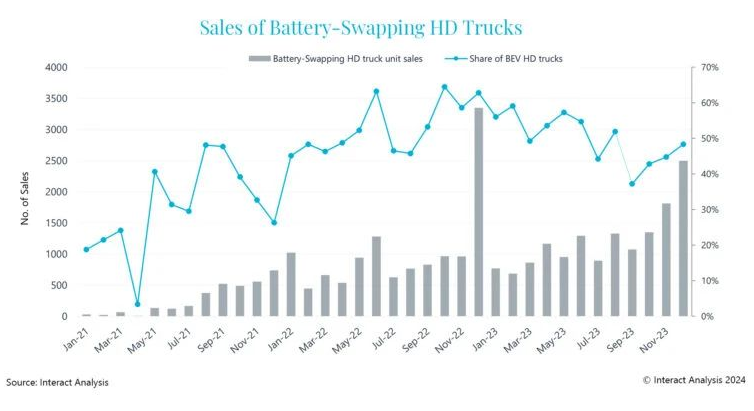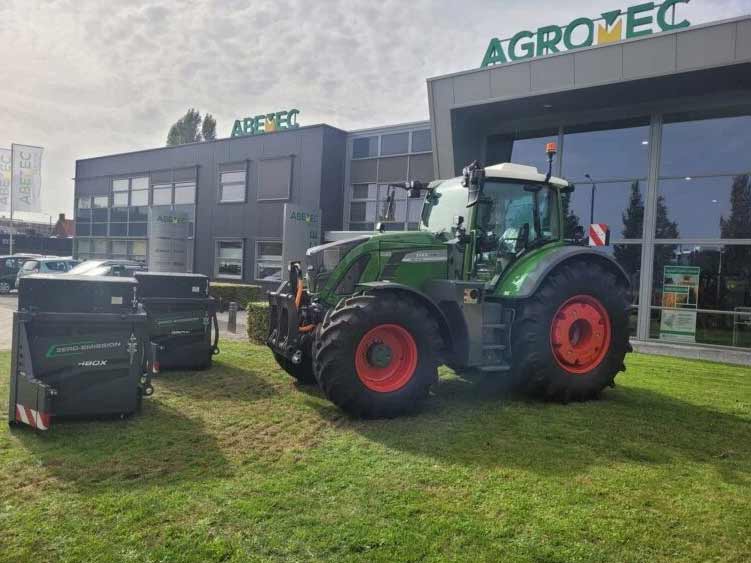Do You Need Help? Here Us : Tel : +86 595 22486398
Do You Need Help? Here Us : Tel : +86 595 22486398
Is anyone developing battery replacement solutions for construction machinery?
August 12, 2025Off-highway machinery, such as excavators and tractors, is among the largest and most powerful machines in the world, each requiring significant amounts of electricity and producing significant pollution. Off-highway machinery manufacturers have developed electric models to reduce greenhouse gas emissions and other pollutants. Given their size and operating time, these machines are difficult to electrify because they require very large batteries and regular access to the power grid.
Even in markets that have been relatively progressive in reducing building emissions, adoption has been slow to date. One key challenge is that electric motors can operate for the same number of hours as diesel engines. Unlike passenger vehicles, off-highway machines can be used for more than eight hours per day, and in many cases even longer.
To achieve the same performance from an electric motor, a very large and very expensive battery is required. This not only makes the machine expensive, even considering the lower cost of electricity than diesel, but it is also difficult to design a machine with a very large battery. Getting the machine to stop and complete the required work, and recharging the battery takes a long time, all of which results in the operator spending a lot of money to deal with these issues. But is there a solution that can reduce the cost of the machine while speeding up the charging time?
Battery swapping isn't a new concept. In the passenger car market, it has a murky past (anyone involved in electric vehicles will remember the failure of Better Place), though Chinese auto OEMs are working to create an ecosystem. In the heavy-duty truck market, China is a growing market, with thousands of trucks already supporting battery swapping.

For off-highway vehicles, battery swap solutions are already emerging, potentially driving wider adoption of electric motors. These include: Tvek produces a battery-electric underground loader that supports battery swapping. The vehicle's battery pack can be replaced in 5 minutes without the operator leaving the vehicle, allowing the battery to be charged while the vehicle is in use and minimizing the time the machine is not hauling rock. Komatsu and Honda have jointly developed a mini excavator, the PC05E-1, a scaled-down version of the PC01E-1. It is powered by a swappable Honda Mobile Power Pack e (a small 1 kWh battery pack) that can be manually replaced. This type of machine is suitable for small ground operations and, due to its size, is highly maneuverable.
ZQuip (a newly formed Moog subsidiary) offers a battery swap solution that can be integrated into existing diesel machinery, converting it to electric power. The ZQuip Energy Module is a battery-powered solution that is machine- and industry-agnostic. This interchangeable, modular system creates a sustainable energy solution for the jobsite, serving as both a zero-emission power system for the machine and as a battery energy storage system (BESS) that can discharge power to other machinery or equipment on the jobsite.
AGROMEC of the Netherlands has developed a battery swap solution for agricultural tractors. The tractors are equipped with a relatively small onboard battery (70 kWh), which provides sufficient power for short, light-duty work and battery pack usage. A swappable 140 kWh battery pack can be added to the front of the tractor, enabling longer operating performance. The pack is manufactured by ECE/Webasto, and several tractors are already in use on farms and construction sites in the Netherlands. The electrification of agricultural equipment is challenging, and indeed, electric solutions may not be the path the industry will decide to take. However, a standardized battery swap solution could help drive real adoption and convince farmers to make the switch.

Construction machines with swappable batteries offer numerous advantages. Battery packs can be made smaller or even eliminated from the machine entirely, significantly reducing upfront costs and spurring wider adoption. Batteries account for 38% of the cost of an electric off-highway machine. Operators can manage costs by selecting the number of battery packs needed for the job, rather than purchasing very large batteries when all the stored energy is rarely needed.
Furthermore, since the battery pack can be swapped efficiently in just 5 minutes, charging-related issues (such as vehicle inoperability) are eliminated. When not in operation (whether at night or during off-season), the battery pack can be used for grid storage, providing an additional revenue stream for operators. Ultimately, this is likely to prove a lucrative revenue stream for rental companies, as they can provide battery packs as a service to users who require additional capacity.
It's worth noting that electric construction equipment has the potential to disrupt the construction equipment industry through battery swaps. With growing concerns about the cost and availability of biofuels and e-fuels, low- and zero-emission off-highway equipment may need to become electric to meet stringent emissions regulations. While a very emerging market, off-highway battery swaps have potential, and we can expect to see a shift in off-highway battery market share over the next few years, as they become increasingly accepted by the public.
Source: Machinery Intelligence

Please read on, stay posted, subscribe, and we welcome you to tell us what you think.
Add: Pudang Village, Xiamei Town, Nan'An City, Quanzhou, Fujian, China
Quanzhou Huamao Machinery Equipment Co.,Ltd All Rights Reserved.  Network SupportedSitemap | blog | Xml | Privacy Policy
Network SupportedSitemap | blog | Xml | Privacy Policy